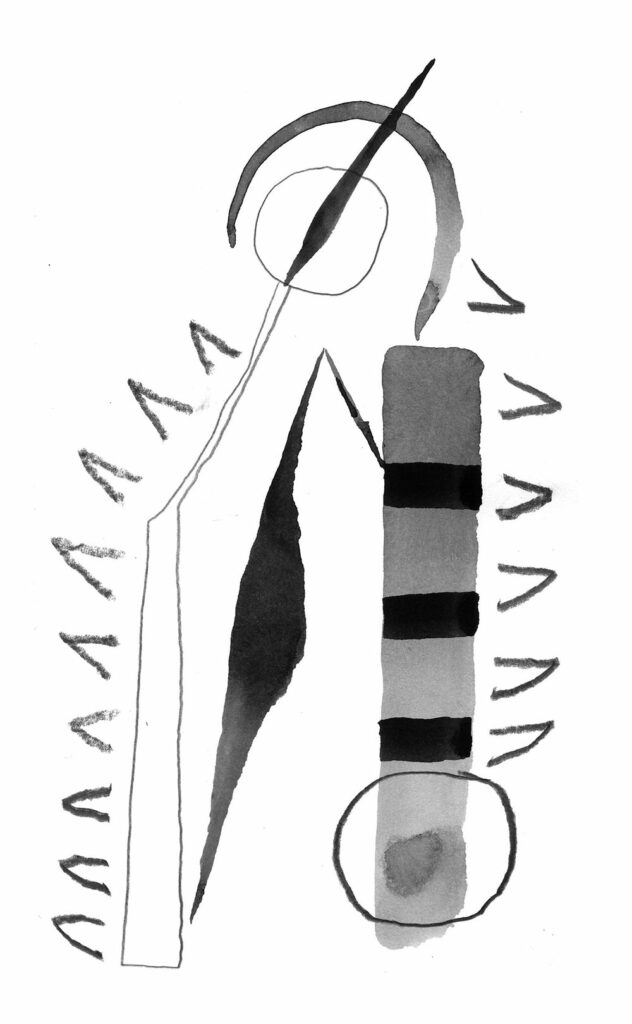
As a new member of the Review’s team, it gives me great pleasure to bring you several equally new contributors in our new Winter issue. Some are celebrated literary artists, some are emerging voices, and others fall somewhere in between. Perhaps the most lofty among them is William of Aquitaine, also known as the Duke of Aquitaine and Gascony and the Count of Poitou—the earliest troubadour whose work survives today. For all his lands and eleventh-century titles, there’s a slapstick vibe to this unwitting contributor’s bio that I can’t help but find endearing. Excommunicated not once but twice, and flagrant in his affairs and intrigues, William survived more ups and downs than most modern politicians could ever pull off, and in Lisa Robertson’s agile translation, he speaks to us from the end of his earthly tether: “I, William, have world-fatigue,” he sighs across the centuries.
Much of my new job involves sifting through the slush pile for unexpected gifts—so you can imagine how tickled I was to see the world-weary troubadour dust himself off once again in another poem, by Luis Alberto de Cuenca, titled “William of Aquitaine Returns,” translated into a measured and colloquial English by Gustavo Pérez Firmat:
I’m going to make a poem out of nothing.
You and I will be the protagonists.
Our emptiness, our loneliness,
the deadly boredom, the daily defeats.
The legendary Tang Dynasty poet Tu fu also makes a debut of sorts, in an extended excerpt from Eliot Weinberger’s forthcoming “The Life of Tu Fu,” the “fictional autobiography” of a poet who witnessed the violence, famine, and displacements of civil war in eighth-century China. “Is there anyone left, under a leaking roof, looking out the door?” the poet asks. “They even killed the chickens and the dogs.” Weinberger’s wry, oracular Tu Fu describes a world that feels painfully familiar; it might be Ethiopia, Myanmar, or any number of modern conflict zones.
Elsewhere in our pages, the Ukrainian-American poet Oksana Maksymchuk sends an update from her own war zone, awaiting an enemy’s barrage of propaganda in a cellar lined with strawberry jam; from the couch, C. S. Giscombe shares a resonant scene from his subconscious in the reverie of “Second Dream”; Timmy Straw recalls losing themselves in a yellowing issue of National Geographic, with a nod to Elizabeth Bishop’s “In the Waiting Room”; and in “My Blockchain,” Peter Mishler walks offstage with a literary mic drop par excellence.
Wallace Stevens once envisioned an ideal poet who coldly beholds “nothing that is not there and the nothing that is.” In this issue, you’ll find a poet who rewrites Wallace’s “The Snow Man” in her meditation “That Is”:
our thoughts
become the trying that is
trying to become
the yes that is
trying to unify us
into the nothing that is
Hannah Emerson’s insistent enjambments—from “the trying that is” to “the yes that is” to “the nothing that is”—convey us, and the snow men within, toward a breathtaking destination: “the freedom / that is / free of life yes yes.”
I’d like to conclude this holiday message with an invitation. Thanks to our stalwart crew of readers and editors, we’ll be throwing open our virtual doors more regularly to poetry submissions moving forward, with a Submittable reading period scheduled for January 2023. I can think of no better way to begin the new year—with a copy of our Winter issue in my parka pocket, new poems to read on my desk, and that singular feeling of “yes yes.”
Srikanth “Chicu Reddy” is the poetry editor of The Paris Review.
from The Paris Review https://ift.tt/eaAT3SD
Comments
Post a Comment